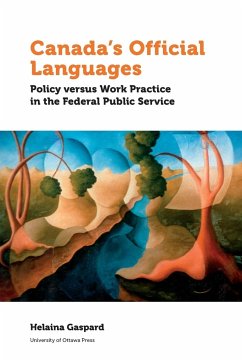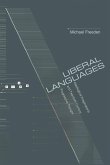Canada's official languages legislation fundamentally altered the composition and operational considerations of federal institutions. With legislative change, Canada's public service has achieved the equitable representation of its two official languages groups, provided services to the public in both official languages, and has codified rights for public servants to work in their official language of choice. On paper, the regime is robust. In practice, there is a persistent divergence between policy and practice, as English dominates as the regular language of work in the federal public service. Through an historical institutionalist lens based on extensive archival research and semi-structured interviews, Gaspard shows that the implementation of official languages policy in the federal public service from 1967-2013 could not challenge the predominance of English as the operating language of the federal public service. The analysis of the roles of actors, ideas and institutions that influenced the policy implementation process show that a lack of structural change, inadequate managerial engagement, and a false sense that both official languages are equally ingrained in the public service explain the persistence of English as the dominant language of work.
Hinweis: Dieser Artikel kann nur an eine deutsche Lieferadresse ausgeliefert werden.
Hinweis: Dieser Artikel kann nur an eine deutsche Lieferadresse ausgeliefert werden.








